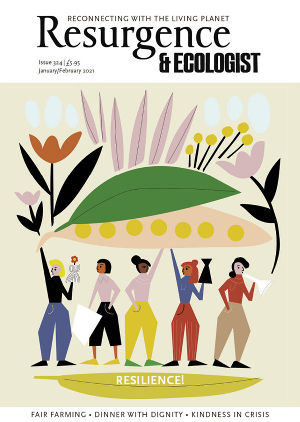Events over the last year have put a firm spotlight on social inequalities in the UK. Most of our politicians in the government couldn’t be more different from the ordinary citizens of this country. Can they understand the plight of communities?
Relatability – that’s Magid Magid’s superpower in many ways. He is ordinary and that’s what makes his achievements in politics and how he’s successfully amplified his voice to millions extraordinary.
Most people will have first become aware of Magid when his mayoral portrait by Sheffield photographer Chris Saunders was released in May 2018. It portrays him squatting on a pillar in the town hall, wearing a funky floral tie and Doc Martens boots.
“It started with that picture that went viral. Honestly, it was just to gain my balance. I was on a high plinth and I didn’t want to fall off and crack my skull,” he laughs. It ended up being a symbol of power, and in some ways a symbol of defiance, he adds. “What gives it more significance is that someone who holds a place in public office as lord mayor of the city, [squatting] is just something you wouldn’t associate with that position, so that’s what made it more powerful too.”
Magid’s new book, The Art of Disruption: A Manifesto for Real Change, is a blend of his personal life lessons and stories, which lead nicely on to his ‘Ten Commandments’. It’s a refreshingly honest and optimistic piece of work, especially in these times where many people feel hopelessness. Magid comes across as someone who represents hope and faith that politicians can be and should be there to serve the people.
In his time as lord mayor of Sheffield, he has ruffled his fair share of feathers. But he’s also implemented changes for the betterment of people, as he urges everyone to do in his book. One example is how he set up the UK’s first suicide prevention charter in 2018, his own mental health being a subject he openly talks about in the book.
The controversial Festival of Great Britain and Northern Ireland, launched by Theresa May in 2018 and dubbed the ‘Festival of Brexit’, has been criticised for being funded by £120 million of public money. Magid was appointed Creative Advisor for the festival, which is taking place in 2022. “The last time we had a Festival of Britain it was the end of the second world war,” he tells me. “The 2022 festival was never called the Brexit Festival, but the tabloids called it that because it sounds snappier. It’s also the reality that it wouldn’t be happening had it not been for Brexit.”
Magid acknowledges the frustrations of the arts and entertainment industry, which is struggling because of the pandemic, and he sympathises with its position in a difficult economic climate. His thinking, though, is that he would rather be in a position to influence change than not. “When the Festival of UK reached out to me, the reality is that I can’t stop the festival from happening, so I can either moan about it on social media or I can get involved and have a seat at the table and influence it – make sure the money is spent on those arts and cultures that are struggling, and working-class people and people from diverse backgrounds are represented.”
As a Somali immigrant, Sheffield’s adopted son and a British political maverick, Magid draws on many of the experiences life has brought his way to speak on topics of race and the environment.
Last spring and summer saw an unprecedented demand for vegetable and flower seeds throughout the UK. A nice little story in Magid’s book is about his mother’s love for gardening and her attempt to grow an avocado tree. Still, being able to have an outdoor space like a garden is a privilege in modern-day Britain, and environmental poverty is very much a reality.
A recent example of this is the lack of access to a garden or outdoor space that has been exposed by the coronavirus. Local park closures as a result of the lockdown revealed that a third of all land in the wealthiest 10% of London wards was taken up by private gardens, whilst just over a fifth of the poorest 10% was occupied by garden spaces.
Magid is passionate about this issue. “If you live in a council estate or tower block, you’re not going to have a garden space or anything like that. But also, if we look at where the fossil fuel industries pollute the most, it’s in areas with a high concentration of immigrants, people from black and minority ethnic backgrounds, and this is where the worst air pollution is.
“Along with climate change, we need to tackle the entire system. That’s one of the good things about the Green New Deal, because it looks at the entire system to tackle the air climate crisis. It’s not just a case of having to focus on climate only, because it’s linked to every part of society.”
At the end of our hour-long conversation, Magid says that everyone can play their part to make a change: hope coupled with action, whether that be on climate justice or austerity.
Magid is an example of how you can overcome the most difficult of hurdles and use those tough experiences to become a voice for others. His personality shines throughout the book, with stories that showcase his humour and empathy. He is a multi-faceted politician, and the UK could desperately do with more like him.
For more information: www.magicmagid.com







